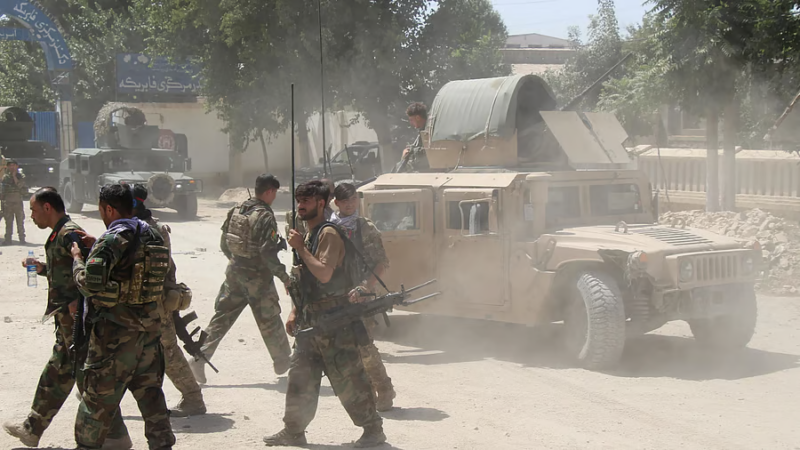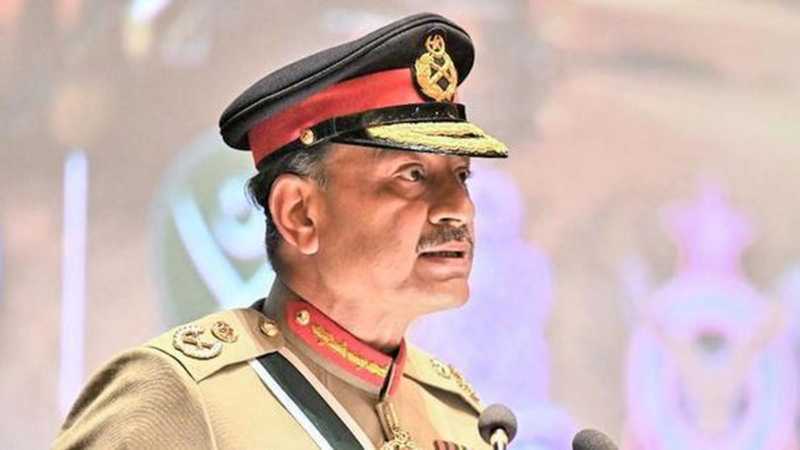Attacks by terrorists in Pakistan targeting Chinese nationals won’t end unless Beijing takes action. CPEC
The newly elected Prime Minister of Pakistan, Shehbaz Sharif, is reportedly planning a visit to Beijing soon, However, the gruesome attack on the convoy of Chinese nationals, killing five of them, on 26 March could delay the proposed visit. After a suicide attacker near Besham city in northwest Pakistan’s Khyber Pakhtunkhwa province rammed his explosive-laden vehicle into the convoy, which had engineers who were working on the hydroelectric project in Dasu, Islamabad appears visibly shaken. This is not the first attack on Chinese nationals in Pakistan, particularly in and around the troubled Balochistan region.
A day prior to this incident, separatist fighters belonging to the Majeed Brigade, a faction of the Balochistan Liberation Army (BLA), which has been behind several attacks on Pakistani and Chinese individuals, attacked the Pakistan’s second largest airbase PNS Siddique in Turbat area in the southwestern province of Balochistan. It killed one paramilitary soldier. Pakistan security forces reportedly killed all five assailants in retaliatory fire. Established in 2011, the Majeed Brigade, a guerilla warfare unit with camps along Balochistan-Iran border has been mounting virulent attacks on Chinese projects and assets along the China-Pakistan Economic Corridor (CPEC).
In April 2022, Shari Baloch, a female suicide activist attacked the Confucius Institute at Karachi University, killing three Chinese teachers. The Baloch separatists view the university as a symbol of Chinese state imperialism. The same year, the paramilitary Frontier Corps (FC) camps in Naushki and Panjgur districts were attacked by suicide bombers. The Majeed Brigade started attacking Chinese interests after targeting Pakistani politicians who were against Balochistan’s freedom. It carried out a suicide attack on a bus carrying Chinese engineers in Dalbandin in August 2018, hit the Chinese Consulate in Karachi, Gwadar’s Zaver Pearl-Continental Hotel, and the Pakistan Stock Exchange, calling it ‘Chinese exploitative plans’.
After every attack, Beijing warned Islamabad of serious consequences if the perpetrators of the attacks were not identified and punished. The warning was repeated after the latest attack. Sharif rushed to the Chinese Embassy in Pakistan to convey condolences and sympathies to the bereaved families and the Chinese government. President Asif Ali Zardari, the Foreign Minister Ishaq Dar, the Interior Minister Mohsin Naqvi, and several other leaders in the Pakistani government strongly condemned the attack and expressed condolences. Pakistan’s Chief of Army Staff General Syed Asim Munir Ahmed Shah has promised that the army will thoroughly investigate the attack and take further measures to ensure the safety of Chinese citizens in the country. However, it’s easier said than done.
Following the recent elections, the Pakistan army, especially its chief, has suffered a significant blow to its image. The army stands exposed as it foisted a lame-duck prime minister, totally sidelining the former PM Imran Khan’s party, Pakistan Tehreek-e-Insaf (PTI). The independents supported by the PTI emerged as the single largest group in the National Assembly. These elected representatives and their supporters are waiting for an opportune moment to strike and destabilise the government, which they accuse of “stealing their mandate.”
Afterall, Chinese leader Xi Jinping’s proposed visit to Pakistan in 2014 to cement CPEC was put off due to PTI’s massive protests against the then prime minister Nawaz Sharif, who was later unseated. Since no government in Islamabad has lasted its full term ever since the formation of Pakistan, it will be a tough call for the army to make this coalition work. With instability in Islamabad, the Chinese will continue their waiting game before putting more money into the CPEC and other projects.
Need for anti-terrorism coalition
Despite repeated warnings, the Pakistan army seems to be ineffective in combating the terror attacks orchestrated by several outfits–each with different motives. The most vicious ones occur at the beginning and the tail end of China’s ambitious CPEC, which aims to link the troubled province of Xinjiang with the equally troubled Gwadar in Balochistan. When the Chinese Vice Premier, He Lifeng, was in Islamabad in July 2023 to celebrate CPEC’s 10th anniversary, a suicide bomber killed 44 persons at a political rally in Khyber Pakhtunkhwa province. The Pakistan Taliban, Tehreek-e-Taliban-e-Pakistan (TTP), is also reportedly regrouping in the Afghan region bordering Khyber Pakhtunkhwa province against the CPEC passing through Peshawar.
The links between TTP and the Islamic State–Khorasan (ISK) is no secret. Recently, ISK has been actively targeting States within its self-proclaimed Islamic Khilafat of Khorasan, including Iran, Afghanistan, Pakistan and Central Asian countries, as well as their ‘friends’ such as China and Russia. These countries are also fertile recruiting centres for the organisation.
An informal alliance between TTP, ISK, BLA, Afghan Taliban and the Xinjiang/Uyghur freedom groups such as East Turkestan Islamic Movement (ETIM) and the Turkistan Islamic Party (TIP), a terrorist Uyghur Islamic extremist organisation founded in Pakistan by Hasan Mahsum, would be a formidable force to blow up almost all the Belt and Road Initiative (BRI) projects in the region. Let alone the Pakistan army, even the combined strength of all the States cannot eliminate these outfits completely. It is for the US, China, Russia and India to seriously consider an anti-terrorism coalition, which, in the present geopolitical dynamics, looks like a tall order.
China’s frustration with Islamabad over repeated terror attacks on CPEC projects is evident. Besides cutting down on the proposed investment, Beijing has refused to include cooperation in the areas of energy, water management, and climate change under the CPEC projects. Islamabad’s proposal for cooperation in cross-border tourism in Gilgit-Baltistan, Khyber Pakhtunkhwa, and coastal tourism, as well as the setting up a new Joint Working Group (JWG) and the inclusion of a 500kv transmission line from Hub to Gwadar to link the seaport city with the national grid, were all rejected by China.
Balochistan, the largest province that Pakistan annexed in 1948, is simmering with discontent as its mineral wealth is being looted by China. The marginalised Baloch tribe has taken to armed struggle as a last resort and may not relent till its vision of “Azad Balochistan” is realised. The sooner China accepts the reality, the better it will be. Meanwhile, it is free to sink its investments in the endless pit of a failed state.






